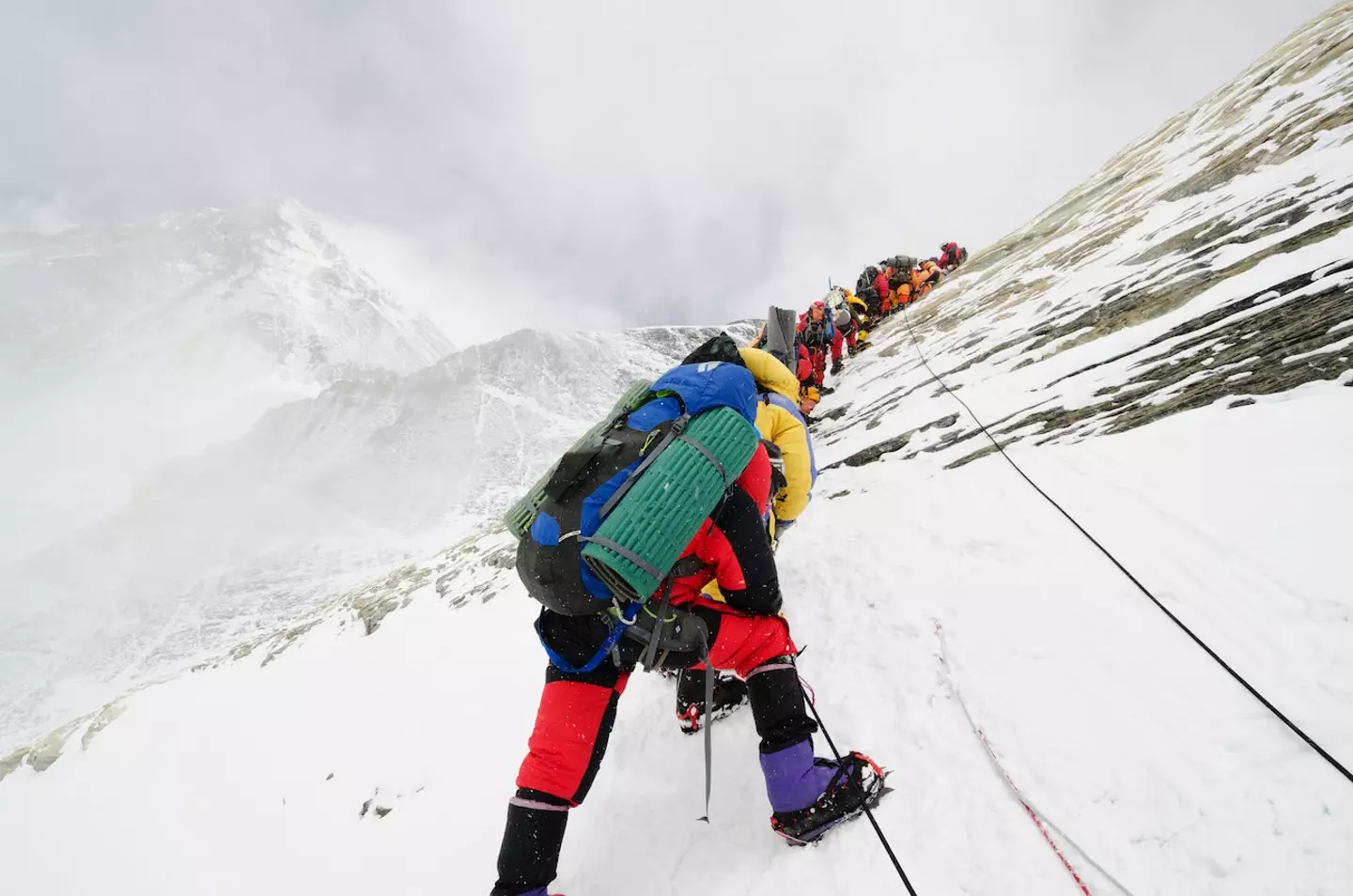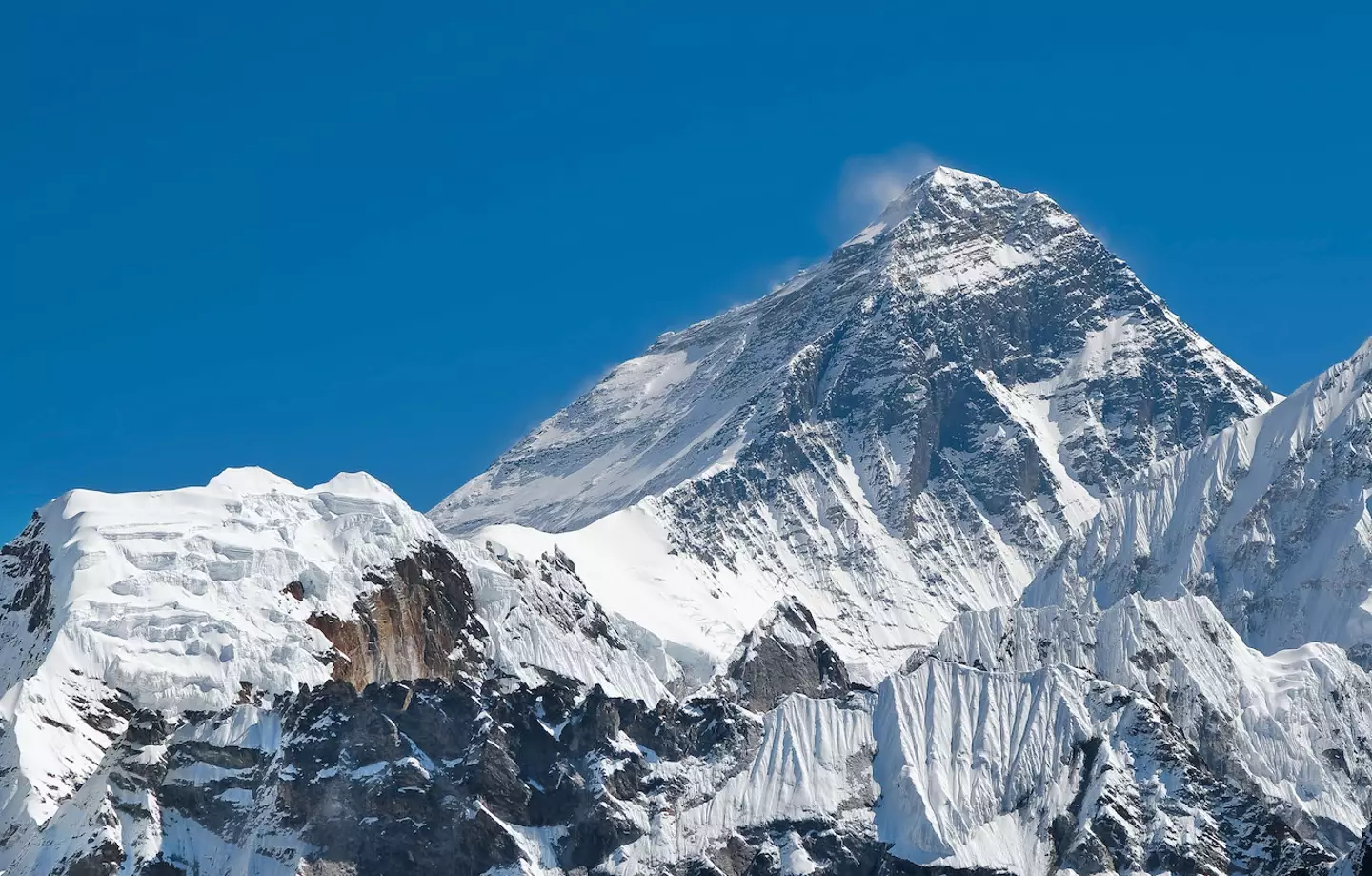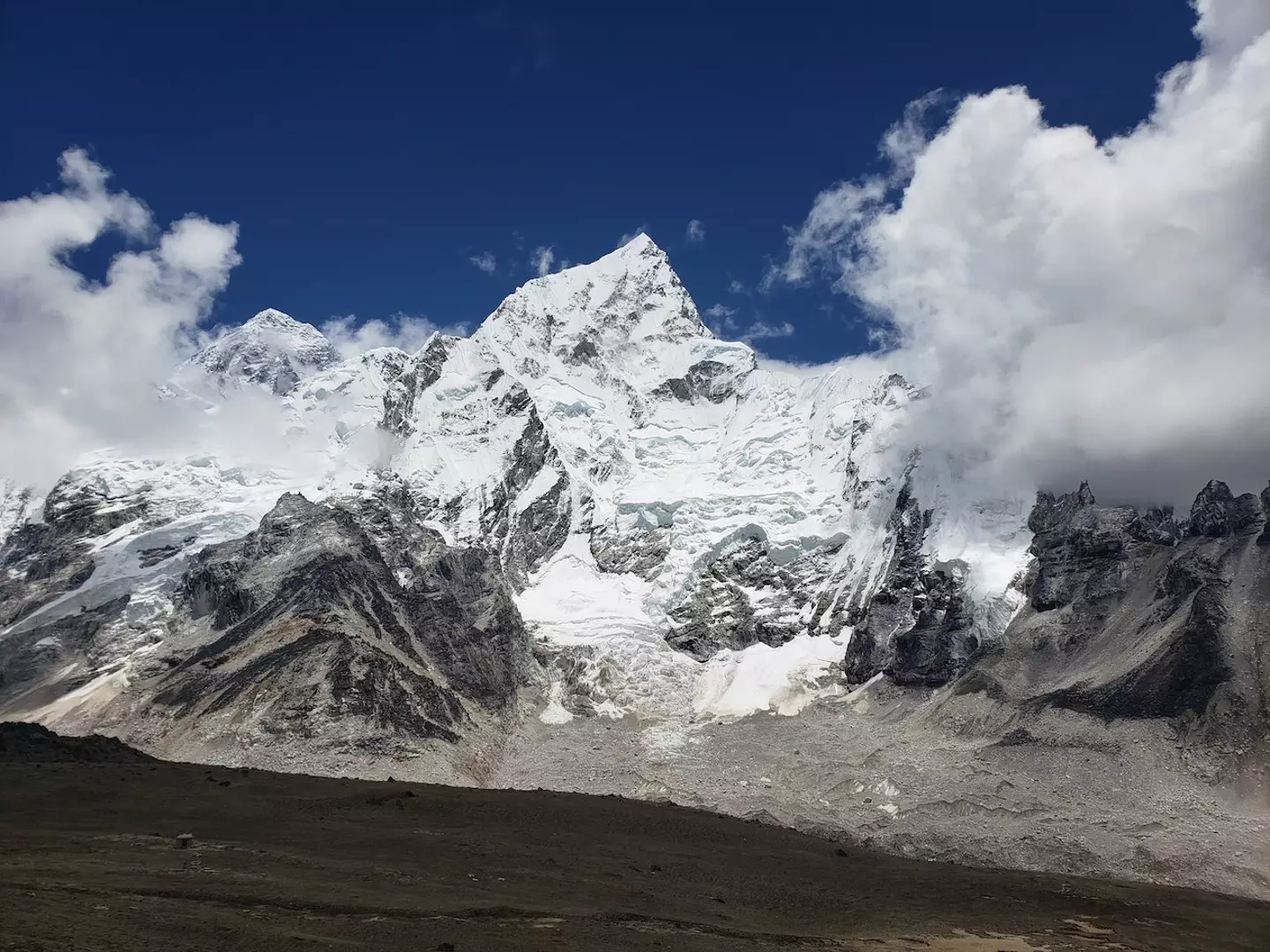
Anyone who dares to climb Mount Everest's highest peak will eventually find themselves in the horrifying 'death zone'.
Earth's highest mountain above sea level is located in the Mahalangur Himal sub-range of the Himalayas.
At least 310 people have died attempting to reach the summit, which stands at roughly 29,031ft.

Advert
However, climbers who ascend higher than 26,000 feet, will quite literally enter the 'death zone', where risk of heart attack, stroke, or sickness go through the roof.
There is so little oxygen up there that the body struggles to keep up and cells can quickly deteriorate, minute by minute.
Jeremy Windsor, a doctor who climbed Everest in 2007, told Everest blogger, Mark Horrell, that the climbers of the death zone would be surviving on just one-quarter of the oxygen one would need at sea level.
"These were comparable to figures found in patients on the verge of death," Windsor said.
At high altitudes the body will produce more hemoglobin than usual to compensate for the dramatic oxygen change.
Yet too much hemoglobin will actually thicken your blood, making your heart work ever harder to pump blood around the body, which massively increases the chance of a stroke.

Climbers are also at risk of hypoxia - when your brain doesn't receive enough oxygen.
Hypoxia causes brain swelling and makes it difficult to concentrate and is likely to trigger vomiting and sickness.
"Your body is breaking down and essentially dying," Shaunna Burke, a climber who summited Everest in 2005, told Business Insider.
"It becomes a race against the clock.
"Every second or third breath your body gasps for air, and you wake yourself up."
High-altitude expert and doctor Peter Hackett also told PBS: "Humans will start to deteriorate.
"Sleeping becomes a problem. Muscle wasting takes place. Weight loss takes place."

Sir Edmund Hillary, who became the first person to climb Everest in 1953, along with Tenzing Norgay, has previously complained about lack of help offered by other climbers.
He told the New Zealand Herald: "If you have someone who is in great need and you are still strong and energetic, then you have a duty, really, to give all you can to get the man down and getting to the summit becomes very secondary.
"I think the whole attitude towards climbing Mt Everest has become rather horrifying. The people just want to get to the top. They don’t give a damn for anybody else who may be in distress and it doesn’t impress me at all that they leave someone lying under a rock to die."